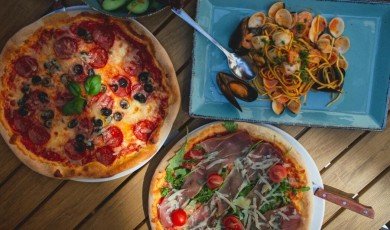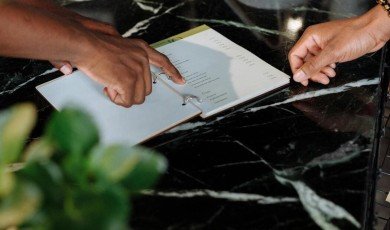
Dubai has long been renowned as an international destination, not just for business and tourism, but for its extraordinary culinary scene. Stepping inside a restaurant in Dubai is like opening a portal to the world, where you are just as likely to be greeted with “Konnichiwa” as “Marhaba” or “Bonjour.” The city’s dining establishments are a microcosm of its broader multicultural fabric, serving up Indian curries, Lebanese mezze, French pastries, and everything in between. However, this culinary celebration is not just about what you see and taste; it’s also about what you read and understand. Behind the rich aromas and eye-catching presentations lies a crucial, often invisible ingredient: effective language translation services that make Dubai’s dining experience truly accessible and enjoyable for all.
As Dubai continues to welcome expats and tourists from every corner of the globe, restaurants are tasked with the challenge of communicating menus, culinary stories, and hospitality to a linguistically diverse audience. Let’s delve into the vital role that professional translation and interpretation play in moving the magic from kitchen to guest table in Dubai’s restaurants.
Main Research: Breaking Down Language Barriers for a Seamless Dining Experience
The Linguistic Challenge in Dubai’s Restaurant Industry
With over 200 nationalities living and working in Dubai, language diversity is both a strength and a challenge. For restaurants, especially those aiming to establish themselves as must-visit destinations for both locals and tourists, language barriers can pose significant obstacles. Imagine arriving in a vibrant eatery, only to find the menu is available only in Arabic or English, while your native language is Mandarin, Russian, or Hindi. The opportunity to connect with a dish’s story, ingredients, and cultural significance is lost — and sometimes, even choosing what to eat becomes daunting.
This is where professional language translation services become indispensable. These services help Dubai restaurants offer seamless communication through professionally translated menus, signage, promotional materials, allergy notices, and even waiter scripts. By investing in quality translation, businesses foster inclusivity, increase customer satisfaction, and build genuine loyalty among a global clientele.
The Impact of Translation on Guest Satisfaction
The connection between language and guest satisfaction cannot be overstated, especially in hospitality. When a restaurant provides menus in multiple languages, it ensures that guests with varying linguistic backgrounds can make informed choices, avoid allergens, and appreciate the chef’s creative intent. This personalized touch makes diners feel both welcomed and respected, leading to positive reviews and repeat visits.
In Dubai, it’s common to see restaurant menus translated into Arabic, English, Russian, Mandarin, and even lesser-spoken languages. These translations aren’t merely literal word swaps — they often require context-sensitive localization, taking into account cultural dietary restrictions (such as halal and kosher standards), local idioms, and preferences. Professional translation agencies often deploy culinary-savvy linguists who understand both the technicalities of cuisine and the nuances of intercultural communication.
Certified Translations and Their Importance in Dubai’s Restaurant Industry
Trusted USCIS certified translation services offer an added level of reliability, especially when legal or official restaurant documents need to be shared across national and linguistic boundaries. These can include food safety certifications, chef qualifications, employment contracts, or franchise agreements. Certified translation ensures that the documents hold legal validity across multiple jurisdictions, protecting the interests of business owners, employees, and diners alike.
Furthermore, certified translation is an important support for restaurants working with international suppliers or expanding their footprint through global partnerships. Compliance with Dubai’s strict food regulations frequently requires multilingual documentation — and errors at this level could have costly repercussions.
Localization and Cultural Sensitivity: More than Just Words
In Dubai’s cosmopolitan environment, localization – the adaptation of content for a particular market – is as crucial as translation. It’s not just about menu descriptions but the entire dining narrative, from welcome greetings to wine pairing suggestions. This enhances the overall dining experience, helping customers from diverse backgrounds feel right at home, whether they’re navigating complex spice levels or learning the story behind a traditional Emirati dessert.
Video content, storytelling, and interactive digital menus are also on the rise. Check out this video on the future of translation technology in hospitality: how translation changes guest experiences in the restaurant industry. It’s clear from industry testimonials that seamless linguistic support boosts not just guest understanding, but also emotional engagement — the key to making memorable moments.
Featured Examples in Dubai
Many Dubai restaurants now view multilingualism as part of their core competitive edge. High-end establishments in Downtown Dubai, pop-up eateries at Dubai Marina, and beloved family-run shawarma shops in Deira all invest in quality language translation services to reach tourists, business travelers, and local foodies alike.
For instance, a Japanese-Peruvian fusion restaurant might offer its “Nikkei” menu in Japanese, English, and Spanish, maximizing its appeal to adventurous gourmets. Popular Indian dining chains provide Hindi, English, and Tamil translations, ensuring South Asian expats feel right at home. Meanwhile, authentic Chinese hotpot restaurants deploy detailed Mandarin-English-Arabic menus to cater to tour groups, expats, and Emiratis alike.
Conclusion: Savoring Multiculturalism, One Word at a Time
As Dubai’s dining scene grows ever more diverse, the importance of clear, culturally rooted communication grows along with it. Professional language translation services and uscis certified translation services serve as silent ambassadors, bridging the gap between chefs, restaurateurs, and the multicultural guests they serve. From ensuring menu clarity to facilitating global partnerships and regulatory compliance, translation touches every aspect of the hospitality experience — often without diners even realizing it.
If you are a Dubai restaurant owner looking to expand your international reach, enhance guest experiences, or meet regulatory requirements, now is the time to invest in quality language support. Looking for a partner to help you communicate with the world? Explore specialized solutions at PoliLingua and watch your table transform from a simple place to eat to a space where cultures meet, stories are shared, and every guest feels at home.
In the end, the true flavor of Dubai’s multicultural dining scene lies in its ability to unite people through food and language. With every carefully translated menu page and every culturally-sensitive greeting, Dubai’s restaurants are not just feeding their guests — they’re connecting hearts and minds across the globe. See also: https://restaurantbois.nl/posts/why-netherlands-restaurants-need-business-translation-services-to-operate-internationally







